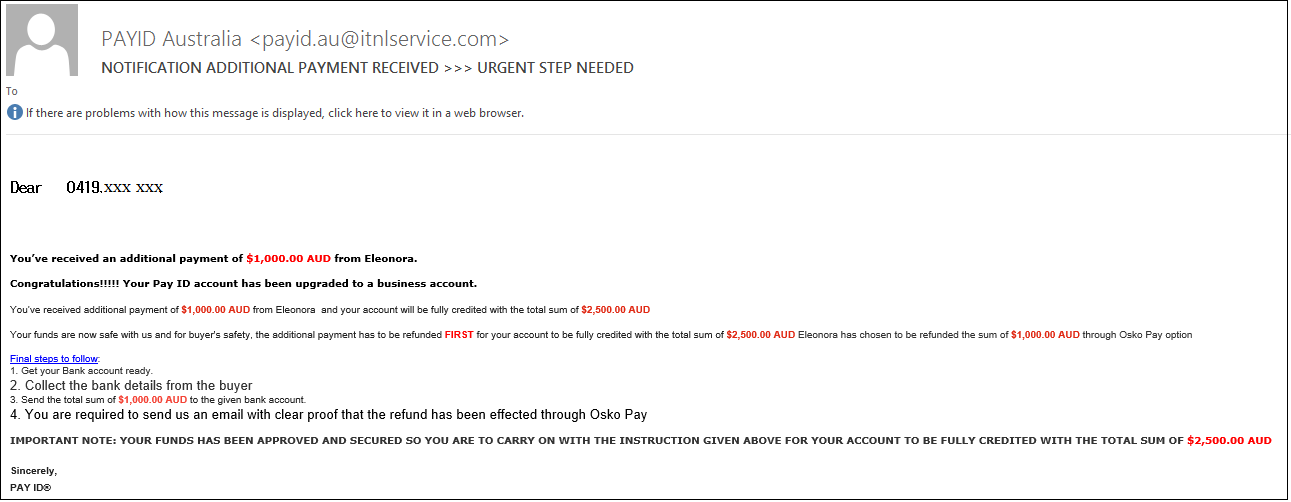There is a new scam currently circulating where fraudsters are targeting sellers on online classifieds such as Facebook Marketplace and Gumtree.
How does the Facebook Marketplace scam work?
A ‘buyer’ will get in contact will the seller regarding a listing, which will initially seem genuine.
They will then advise the seller that they are unable to meet in person and will instead send a friend or relative.
The scammer will then send a fake email stating that there was an issue with the payment because PayID limits exist on non-business accounts.

They advise that the seller must first transfer funds to increase their PayID limit so that the payment can be released to them. As soon as this is done, they are promised they will receive a refund and the buyer’s payment.

Unsuspecting sellers are then tricked into sending money to the scammers.
How to protect yourself
While Australians have developed a greater awareness of scams in recent years, there are still some signs you should look out for if you’re trying to determine whether an online buyer is fake.
- Have a good look at their profile. Most scammers on Gumtree will have relatively new profiles while Facebook scammers often post odd content in different languages on their feed.
- Another red flag is when the person you’re talking to tries to take conversation to third-party app to conduct business. This may include email, Viber or WhatsApp. Australia's consumer watchdog says the key to avoiding scams is to keep communication and transactions within a secure platform. "Many people report losing money after communicating with the scammer over email to discuss a purchase on a digital marketplace," a spokesperson for the Australian Competition and Consumer Commission (ACCC) told SBS News.
- The buyer will create a sense of urgency by insisting they pay straight away without them even seeing the item. They’ll also be against receiving cash and meeting up with you in person. Scammers commonly ask for payment methods like pre-loaded gift cards, bank or international funds transfers, and cryptocurrency, making it harder to recover funds. The ACCC says to use PayPal or credit cards.
The ACCC also warns to be wary of very low prices, often lower than comparable or identical items on other websites.
"Slow down and consider whether a sale is too good to be true," the spokesperson said.
Is PayID safe?
An Australian Payments Plus spokesperson said customers "should be assured that PayID remains a safe way for customers to receive money".
"Protecting customers against scams requires a collective effort and Australian Payments Plus continues to work closely with the banks, the broader financial services industry and regulators to combat this issue.
"In this case, Australian Payments Plus is also taking specific action to get fraudulent email addresses claiming to be from PayID closed."
What to do if you've been scammed
If you have lost money to a scam, please notify your financial institution as soon as possible.
Australian Mutual Bank members can speak to our Fraud Team by calling 13 61 91 or by emailing info@australianmutual.bank.
For more advice on how to avoid scams and what to do if you or someone you know is a victim of a scam, see our Security Advice section or visit the Scamwatch website at www.scamwatch.gov.au.
Sources:
SBS.com.au: 'Is this still available?': The common trick scammers are using to skim your money on Facebook Marketplace
News.com.au: ‘What’s your payID’: Three words that signal your buyer could be a Marketplace scammer






